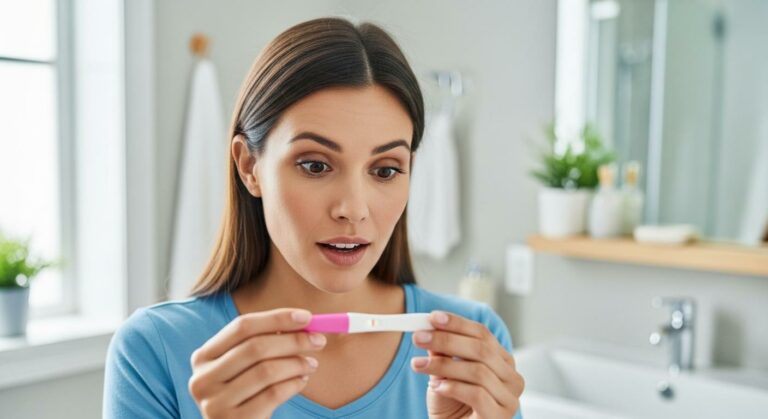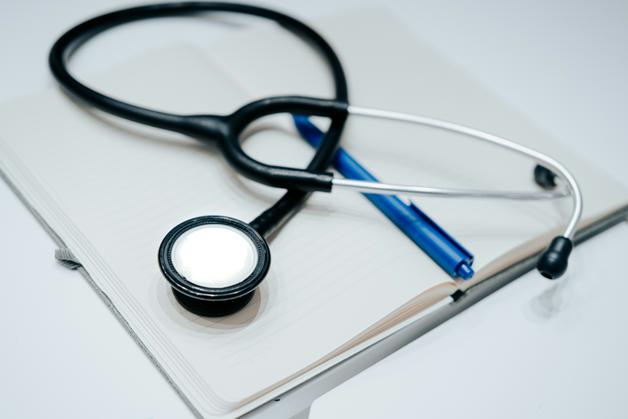Coffee during pregnancy often becomes a topic filled with both comfort and apprehension for many parents. The scent of freshly brewed coffee in the morning, the warmth between the palms—these are simple pleasures. Yet, when the positive line appears on the test, a new wave of questions arrives. Is that cherished cup of coffee suddenly a source of risk? Should you track every sip, measure every granule, and tally every bit of chocolate or cola just to feel secure? In this delicate balance between routine and responsibility, finding trustworthy solutions is not always easy. Let’s break down the scientific facts, the practical choices, and the real experiences that shape the decisions around coffee during pregnancy—from caffeine’s effects on the fetus to the medical guidelines that underpin modern care.
How Coffee During Pregnancy Affects the Body and the Baby
Coffee during pregnancy is more than a morning ritual; it instantly raises concerns related to caffeine—the main active compound responsible for boosting mental alertness, but also for raising medical questions in expecting parents. Once consumed, caffeine passes swiftly through the placenta. For the developing fetus, whose liver enzymes remain immature, caffeine lingers much longer than in adults. As a result, even a modest daily dose can gradually accumulate in the fetal bloodstream.
Let’s get scientific for a moment. The metabolism of caffeine, driven by a liver enzyme called CYP1A2, slows down significantly during pregnancy, especially in the last two trimesters. Palpitations, prolonged insomnia, increased anxiety—these symptoms can become more pronounced, and mothers may notice them more acutely. Multiple research studies converge on one conclusion: high caffeine exposure, especially above 200 mg per day, is linked to an increased risk of low birth weight, intrauterine growth restriction, and sometimes miscarriage, although not every study quantifies risk in exactly the same way.
Medical consensus is reassuring but precise: moderate caffeine consumption—under 200 mg daily from all sources—is considered safe for most pregnancies. The emphasis? Moderation, mindfulness, and monitoring, not sacrificing every pleasure.
What Do Medical Guidelines Say About Coffee During Pregnancy?
- World Health Organization (WHO): Less than 300 mg caffeine/day (about 2–3 cups of regular coffee)
- European Food Safety Authority (EFSA): Below 200 mg/day
- American College of Obstetricians and Gynecologists (ACOG): Less than 200 mg/day
- NHS: Stay under 200 mg/day
Key message: When tracking coffee during pregnancy, count in everything—tea, chocolate, colas, energy drinks. The total sum matters, not just the cup in hand.
Caffeine in Everyday Indian Foods and Drinks
If coffee during pregnancy comes to mind first, don’t forget the hidden sources of caffeine. Here’s a quick look at the average caffeine content in common foods and beverages:
| Beverage/Food | Typical Serving | Caffeine (mg) |
|—————————|—————–|————————–|
| Filtered coffee | 237 ml | 95–200 |
| Espresso | 30 ml | 30–90 |
| Decaf coffee (filtered) | 237 ml | ~2 |
| Black tea | 250 ml | 40–50 |
| Green tea | 250 ml | ~30 |
| Cola | 355 ml | 36–50 |
| Energy drink | 591 ml | Up to 180 |
| Milk chocolate | 28 g | ~7 |
| Dark chocolate | 28 g | 3–23 |
That “one cup” can quickly add up, especially if that cup is actually a large mug, or if occasional soft drinks or pieces of chocolate sneak into the daily pattern. Always examine labels—some over-the-counter medications contain unexpected amounts of caffeine.
Tracking, Tallying, and Taming Caffeine Intake
Realistically, coffee during pregnancy is rarely anyone’s only caffeine source. Tea with breakfast, cola with lunch, chocolate in the evening—the totals can climb before you even realise. The best approach is vigilance without guilt:
- Swap strong coffee with decaf or lighter brews to reduce intake.
- Choose smaller cups—150 ml instead of 300 ml makes a big difference.
- Space caffeinated drinks at least an hour apart from meals. Caffeine can interfere with iron and calcium absorption, which are especially vital for the baby’s growth and mother’s health.
- Experiment with timing—many find their body’s coffee tolerance naturally falls during the first trimester, sometimes due to morning sickness or a heightened sense of smell.
Worried about withdrawal symptoms? Gradual reduction helps. Combination strategies—more decaf, lighter brew, smaller cups—can make the journey easier.
Recognising Signs of Excess Caffeine
Your body gives clear signals. If you experience strong palpitations, ongoing restlessness, repeated struggles with sleep, or persistent nausea, these may signal too much caffeine—even if you feel resistant to the idea. Listen to these cues; reducing intake often results in better sleep, improved digestion, and steadier energy levels.
Some parents, particularly those with existing high blood pressure or anxiety, may need even stricter management of coffee during pregnancy. Regular consultation with a healthcare provider is highly recommended for an approach tailored to your unique health profile.
Alternatives to Coffee During Pregnancy: Comfort Without the Caffeine
Let’s be honest—coffee during pregnancy is wrapped in more than caffeine; for many, it’s also about ritual, taste, and occasion. Here are some alternatives that preserve soothing routines without risking excessive caffeine:
- Decaf coffee (using water-process decaffeination): Almost all the flavour, a fraction of the caffeine.
- Herbal teas: Rooibos, lemon balm, ginger, and rosehip can safely warm a cup (2–3 cups per day is fine). Always cross-check each herbal tea; some, such as licorice root or fennel, must be avoided.
- Barley or chicory-based drinks: Offering a similar roasted taste, these are gentle for sensitive stomachs and almost entirely caffeine-free.
- Fruit-infused warm water or turmeric milk: A popular, comforting choice.
- Milk flavoured with gentle spices or citrus zest: Try cinnamon or cardamom for something special.
Pairing these alternatives with other calming rituals—a book, soft music, or time with loved ones—helps preserve the sense of warmth and relaxation associated with coffee during pregnancy.
What Happens When You Lower Caffeine Consumption?
Shifting away from higher caffeine can sound daunting—will headaches or sleepiness be overwhelming? Fortunately, most withdrawal symptoms (mild headache, temporary drowsiness) subside within a few days. After just two weeks, many parents report easier sleep, reduced digestive troubles, and a stable, calmer sense of alertness. The habit shifts naturally: once the association with strong coffee is broken, other patterns of satisfaction emerge.
Coffee During Pregnancy: Busting Myths With Facts
There is a persistent belief in some circles that any coffee during pregnancy implies danger to the baby’s health. Here’s the reality: all major medical guidelines state that moderate caffeine—below 200 mg per day—does not cause birth defects or automatically lead to miscarriage. The risk rises most sharply when caffeine intake is especially high, or when combined with other risk factors.
And decaf? It’s safe for nearly everyone, though no decaf is entirely caffeine-free. Watch for the hidden sources, but there’s no reason to cut out the pleasure entirely if you prefer decaf coffee during pregnancy.
Timing Matters: Coffee, Iron and Calcium
Iron and calcium are the cornerstones of healthy pregnancy nutrition. Unfortunately, caffeine competes with these minerals for absorption. Try keeping a gap of at least one hour between your coffee or tea and main meals, making nutrients fully available to both parent and child.
Special Circumstances and Breastfeeding Awareness
When underlying health issues—such as high blood pressure or anxiety—are present, extra caution around coffee during pregnancy is wise. For some, total avoidance will be required, but for most, it’s a matter of measured intake and attentive self-care. Consulting with a trusted doctor helps clarify any individual concerns.
After pregnancy, the story doesn’t end. Caffeine does pass into breastmilk, and newborns process it much more slowly. One or two moderate cups spaced away from nursing typically causes no trouble, but be alert: fussiness or wakefulness in your baby may mean adjusting your intake further or switching to caffeine-free alternatives.
Herbal Teas: What’s Safe, What’s Not?
Safe herbal teas during pregnancy: ginger, lemon balm, rooibos, lime blossom, orange zest (up to 2–3 cups per day).
Avoid: German chamomile, fennel, sage, ginseng, licorice root, hops, senna, pennyroyal.
Key Takeaways
- Coffee during pregnancy, when limited to one or two cups per day (not exceeding 200 mg caffeine from all sources), is generally considered safe for most parents.
- Every sip counts—the sum of caffeine from tea, chocolate, soft drinks, and some medicines should be included in your daily total.
- Swap large mugs for smaller cups, try diluted or decaf options, and avoid coffee or tea with main meals to maximise iron and calcium absorption.
- For those experiencing strong symptoms (anxiety, insomnia, heart flutter, nausea), adjusting intake usually brings rapid relief.
- Safe alternatives abound: decaf coffee, gentle herbal teas, chicory coffee, turmeric milk, and more.
- Trust medical guidance, listen to your body, and remember—you can always adjust your routine based on comfort and preference.
- Ongoing doubts or changes in your wellbeing? Professional support is a call away.
- Explore the application Heloa for personalised advice and free child health checklists developed by experts.
Questions Parents Ask
Can drinking coffee cause miscarriage in early pregnancy?
Feeling concerned about miscarriage risks from coffee during pregnancy is very common. Understanding current science, most high-quality studies show that moderate caffeine exposure—less than 200 mg each day—does not cause increased miscarriage risk for most pregnancies. However, very high caffeine, above the recommended limit, might have a stronger effect. If you have a complicated history or additional medical factors, open communication with your doctor is the most reassuring approach.
Is decaf coffee a safe alternative during pregnancy?
Searching for a comforting beverage that keeps your routine intact? Decaf coffee provides a familiar flavour experience, usually with only trace caffeine (under 3 mg per cup) and represents a reliable alternative for most during pregnancy. Methods of decaffeination vary, with water-processing being a gentle and natural method. Always check packages to feel confident in your choice, and discuss with your health professional if questions arise.
Does coffee interfere with iron and calcium absorption?
Yes, caffeine in coffee during pregnancy can lower the amount of iron and calcium your body absorbs during a meal. That’s why it’s wiser to give your meal a one-hour head start before relishing your coffee or tea.
How do I know if I should reduce my caffeine intake?
If you feel jittery, notice your heart racing, sleep poorly or have more nausea than usual, your body might be telling you its caffeine level is a bit too high. Sometimes, babies also show fussiness or disrupted sleep when exposed to caffeine through breastmilk—another cue to watch for.
What is the safest way to reduce caffeine during pregnancy?
Reduce gradually—a smaller morning cup, more decaf as the day continues, and experimenting with alternatives helps your body transition smoother. Headaches and drowsiness usually pass within a few days.
Are herbal teas always safe during pregnancy?
Not every herbal tea suits pregnancy. Ginger, rooibos, lemon balm, and rosehip are generally safe (2–3 cups max). Others—such as sage, fennel, or licorice root—should be strictly avoided due to potential effects on the mother and baby’s health. Always double-check herbal ingredients and ask a qualified healthcare provider if in doubt.
Further reading:









